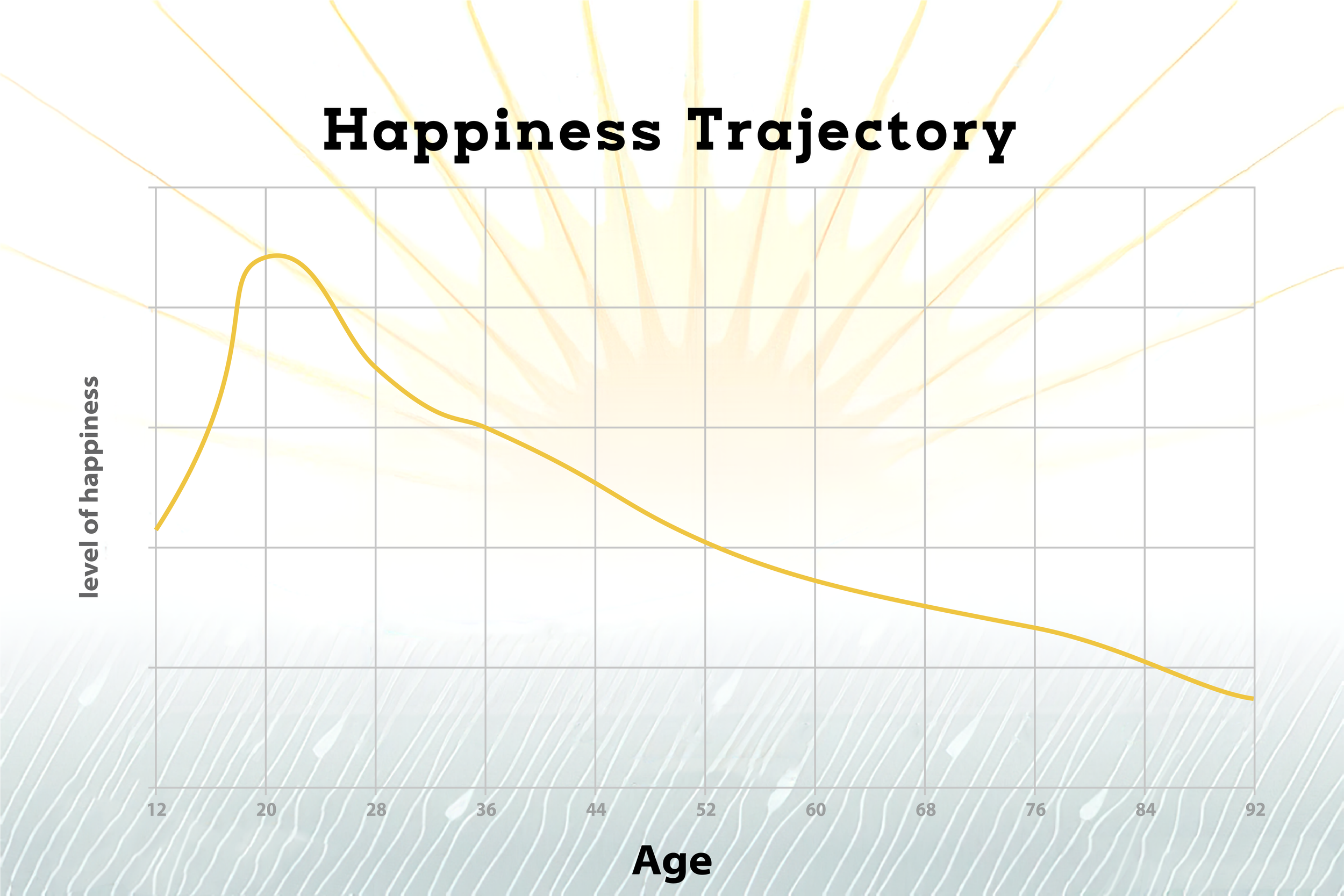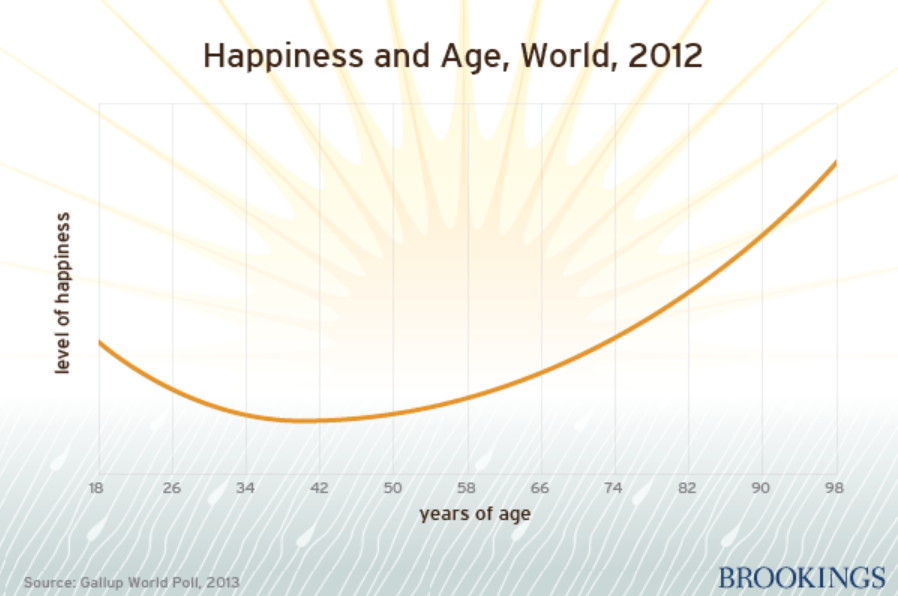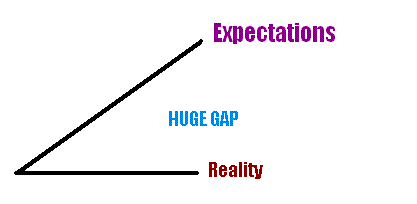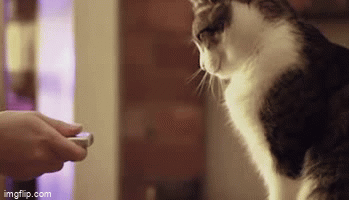4. Challenge social ideals. Trying to live up to them will make you miserable
If you ever get down on yourself because of the gap between your idea of where you should be in life, vs. your reality, then this one’s for you.
Data point of the week:
One common expectation gap lies between the idea that “college is the best four years of your life!” and the reality that it’s often quite hard, and not always packed with fun shenanigans with your new BFFS.
The “college is the best four years of your life” idea is problematic, because seriously, who wants to peak by 22?! This is what your lifetime happiness graph would look like IF that were true.
This happiness graph represents REAL data from Gallup, averaged over hundreds of thousands of people around the world. Individual experiences may vary.
You may recall from previous posts that the number one predictor of happiness is having good relationships. There’s a hypothesis that the happiness dip that begins (for many) in the mid-twenties is the result of prioritizing career and child-rearing over social relationships. Therefore, it may be possible to level out that dip by prioritizing relationships.
Reflection
I’ve been thinking a lot lately about the impact that expectations, ideals, and “shoulds” have on mood. How much depression and anxiety is caused by reality not living up to our expectations?
The thing with expectations is that they can be insidious. We may not even realize we’ve internalized a particular message or expectation, but still compare ourselves against it—and make ourselves miserable in the process. For example, have any of these social ideals insinuated themselves into your conscious or unconscious?
I should have a partner or be married by (a certain age).
I should have a best friend, or a certain number of friends.
Friendships are supposed to last forever.
Finding and making friends is supposed to happen naturally (through kismet or chemistry rather than effort and planning).
I’m supposed to enjoy social situations, feel relaxed in them, and be witty, outgoing, and generally charming.
I’m supposed to be naturally good at relationships and socially skilled (even though I’ve never been taught these skills).
If I’m in college, I’m supposed to be having the best time of my life and meeting my BFFs.
Even if we don’t consciously believe these statements when they’re explicitly stated, how often do we measure ourselves against them? Or negatively compare ourselves to people who look like they’re doing better in a particular realm?
When I find myself in comparing my reality to where I think I should be, it makes me miserable! The thing is, I want to have high expectations. I want to keep reaching for big things. But there’s a big difference emotionally between wanting something and feeling like I should already have it, which just leads to self-criticism, shame, and discouragement.
Connection Skill & Action Step: Challenge Social Expectations and Ideals
We’re happiest when our reality matches or exceeds our expectations … so it can be helpful to change our expectations to be kinder and more realistic. Here are a few examples in the realm of relationships:
Recognize that social skills are learned, not innate. With time and effort, we can improve our people skills at any point in life.
Challenge social ideals and “shoulds” that you measure yourself against and fall short on. For example, counter the thought that “everyone else has friends” with the information that half of Americans report they’re lonely. While this is a hard reality, it means that loneliness is not a “you problem,” it’s a human problem.
Challenge rosy pictures. Things that are worthwhile—including connection—aren’t often easy, effortless, or perfect. Share stories of challenge and struggle, not just successful end results. To counter the “college is the best 4 years of your life” narrative, share the My College Transition video with students who may—or may not—be having a great time at college.
Avoid comparing yourself to others. This is hard because comparison is a natural human tendency, but remind yourself that appearances are not experiences. Despite what we see, we don’t how someone feels—there are often struggles beneath the surface. And even if someone truly excels in a particular area, they may struggle in others.
Try to focus on process over outcomes. Are you taking the steps you need to take to move toward your goals and expectations? Be kind to yourself and where you’re at today, recognizing that with attention, effort, and more time that we usually think, you can make progress.
Questions (Please share your responses in the comments):
What are the social expectations, messages, or ideals that you’ve noticed? How do these ideals, expectations, and message impact you positively and negatively?
Stop trying to measure up!




